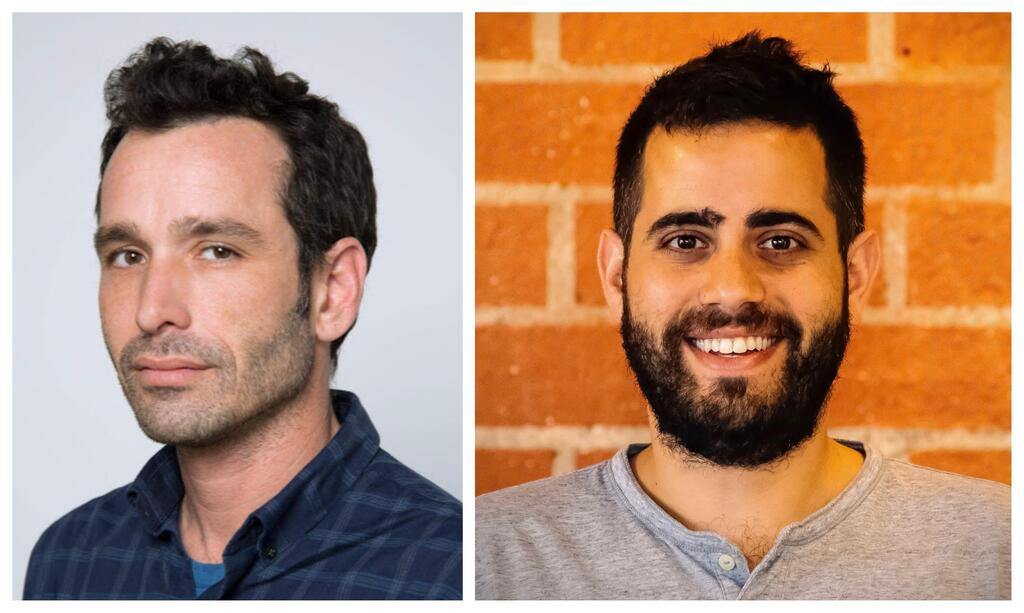
Boarding Pass
SimpleClosure removes the taboo around closing down a business
The company has raised a total of $1.5 million to help organizations shutter their doors in a safe and easy way
A taboo in the startup world is that shutting down your businesses is actually much harder than you might imagine. Despite the odds of success stacked against entrepreneurs, there isn’t a simple way to wind down a company if it fails to reach success.
“Shutting down a business is surprisingly hard, even for very simple ones,” explained Dori Yona, Co-Founder & CEO at SimpleClosure. “For larger or highly regulated companies that have licenses and operate in many states, the complexity scales quickly as does the risk to the founder if they don't shut down correctly.”
According to Yona, it's not just a problem that needs solving but it's also a big business opportunity. “You might think shutting down a business is a one-time event, but there is residual risk exposure that needs insurance coverage as well as IP and assets that need to be managed.”
You can learn more about SimpleClosure below.
Company Name: SimpleClosure
Sector: Fintech
Product/Service description:
Shutting down sucks. Leveraging fintech, legaltech, and AI, SimpleClosure simplifies the wind-down process by automating the bureaucratic and manual work — giving founders peace of mind so they can focus on their next project. We help reduce the time spent on this process from months and years to days and weeks, all while making sure it's done right.
Founder Bios:
Dori Yona, Co-Founder & CEO: Dori is currently the Co-Founder & CEO at SimpleClosure. Before founding SimpleClosure, he co-founded and sold Earny in 2021, a consumer fintech app that grew to 3.5 million users. Earny raised $14 million in funding and was named a "Top 50 Startup to Watch" by Business Insider in 2018. Prior to Earny, he built a social networking app called Hashsnap, which grew to hundreds of thousands of users. SimpleClosure is the third company Dori founded, and he’s seen firsthand what it’s like to sell and shut down a company. In between SimpleClosure and Earny, Dori also spent time at Navan (previously TripActions) as the GM of Growth and led the company’s PLG and SMB motions. Dori lives in Santa Monica with his wife and two kids.
Nimrod Ram, Co-Founder & CTO: Nimrod is a serial entrepreneur who spent the last two decades helping build companies in the e-commerce, media, identity and fintech industries. Before SimpleClosure, he spent 10 years at Riskified where he joined as one of the first employees and saw the company grow to unicorn status and get listed on the NYSE in 2020. In addition to degrees in Computer Science and mathematics, he also holds a degree in Fine Art and enjoys teaching graduate courses in New Media and Interaction Design at various colleges and universities. Nimrod lives in New Jersey with his wife and three kids. As a battle-tested technologist with ample consumer and SaaS experience, he had seen his fair share of successes and failures - including experiencing firsthand the pain and frustrations that accompany the process of a company shutdown. Nimrod joined Dori to help founders navigate the legal, actuarian, regulatory, and emotional complexities of corporate dissolution in a simple, responsible (and hopefully painless) fashion.
Year of Founding: 2023
Last Investment Round: $1.5 million
Last Investment Stage: Pre-Seed
Date of Last Investment: September 2023
Total investment to date: $1.5 million
Investors (leading and all): Co-led by Michael Vaughan and Jon Pomeranz of Vera Equity and Rex Salisbury of Cambrian Ventures, with strong participation from a slew of high-profile SMB-focused startup founders and executives (Plaid, Brex, Nvidia, Sidley Austin LLP, and Gusto).
Current number of employees: 7
Open positions: Engineering
Website:
www.simpleclosure.com
How was the idea born?
The idea originally came to me when I was building my last company. I was tasked by a board member to create a "shutdown analysis” and I realized that it was nearly impossible to get any useful information on the process of shutting down a company. I went from one lawyer to another, accountant to accountant, the internet — it’s almost a taboo subject despite the fact that 93% of startups that raise will shut down.
What is the need for the product?
We are building a platform to help automate the shut-down process, taking on an inefficient process that can take upwards of a year and cost tens of thousands of dollars, enabling founders to move on and focus on their next project.
Shutting down a business is surprisingly hard, even for very simple ones. For larger or highly regulated companies that have licenses and operate in many states, the complexity scales quickly as does the risk to the founder if they don't shut down correctly.
It's a problem that needs solving. It's also a big business opportunity. You might think shutting down a business is a one-time event, but there is residual risk exposure that needs insurance coverage as well as IP and assets that need to be managed.
How is it changing the market?
SimpleClosure is the first platform to take this historically manual process and bring it online to automate the process.
How big is the market for the product and who are its main customers?
We are currently starting with startups, corporations, and LLCs — spanning from fintechs to healthcare — but will expand to other segments as we grow.
To give a sense of the size of the market, in the United States, between 700K–1M companies fail or close each year.
The demand for our product has been growing significantly. SimpleClosure was built and designed with an eye toward profitability and has been generating revenue since day one, which gives us the ability to grow at a fast clip rather than being fully dependent on VC money.
Does the product exist already? If not - at what stage is it and when is it expected to hit the market?
We are currently in a public beta.
Who are the main competitors in this sector and how big are they?
There are legacy service providers that have been doing this for decades, but none that are online. SimpleClosure has taken a historically manual and bureaucratic process that can cost upwards of $75,000 and nearly a year, brought it online, and automated the process for a fraction of the price.
What is the added value that the founders bring to the company and the product?
This is the third company I’ve founded and the experience and connections I’ve gained over the course of those projects have proved invaluable.
As an example, I was previously the Founder of Earny. At Earny, we built a product that automated price protection and scaled it to 3.5 million users in a few years. I spent many years building and automating manual and archaic processes, similar to what we are doing at SimpleClosure.
That said, I’ve never had a company just click the way that SimpleClosure has — the market reaction has been awesome to see. Clearly, there was a gap in the market that we’re filling. In fact, I was not looking to raise money originally, but after attending Fintech Meetup on a free ticket, I pitched the platform to a few investors there — saw the excitement — and had their buy-in the next day.
The fact that we were able to raise so quickly really underscored the market need for a solution like this. Whether or not people talk about it, the reality is that nine out of 10 startups fail.
What will the money coming in from the round be used for?
SimpleClosure raised $1.5 million in pre-seed funding, which will be used to build out our team and product. The majority of the funds will be used for product and engineering development.
SimpleClosure leverages fintech, legal tech, and AI in order to automate the shutdown process in three stages:
- Onboarding: an essential step where we collect information to understand the unique challenges and intricacies of your company. This vital information gathering ensures that a tailored strategy is generated that suits your company's specific needs.
- Dissolution & Wind-Up: After collecting the necessary information in onboarding, we initiate procedures and execute your company's specific dissolution and closure plan. This includes resolving any remaining obligations and tying up loose ends with customers, vendors, state agencies, and team members. During this stage, necessary legal paperwork is prepared, and required consent from stakeholders is secured.
- Shutdown: This final phase includes careful management of tasks such as handling the company's IP, settling any remaining financial obligations, and handling fund distributions to investors. Finally, we offer our expert advice on post-closure activities, such as the retention and safekeeping of vital company records. This final step ensures your obligations are entirely met, leaving no loose ends or future complications.
In the "Startup Boarding Pass" section, CTech will cover the (relatively) small investments made in companies during the early stages of their existence - and the entrepreneurs and startups who have not yet had the opportunity to reveal their stories to the world. Please use the linked form and fill it out according to the guidelines. This form is intended for startups raising between $500,000 and $3 million from venture capital funds, angels, or official grants from Israeli and foreign institutions. If relevant, someone at CTech will be in touch for follow-up questions.














